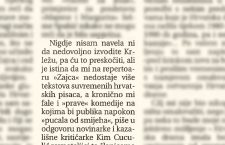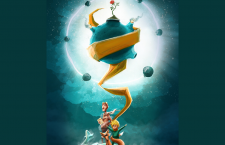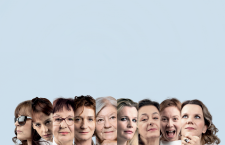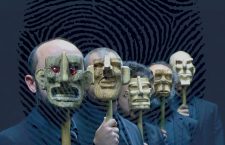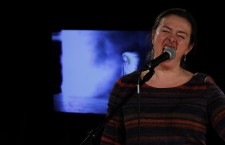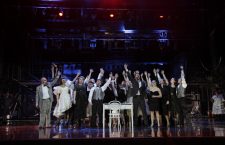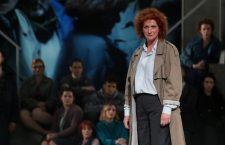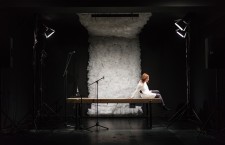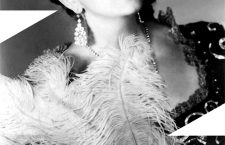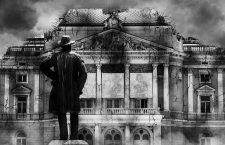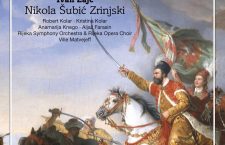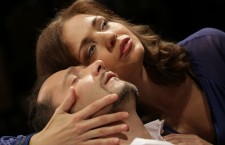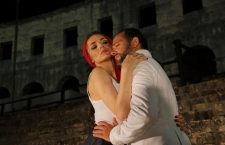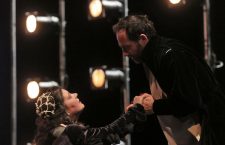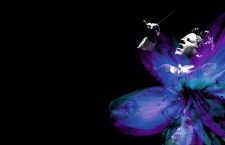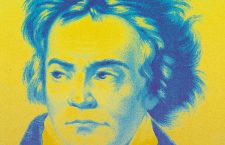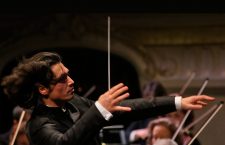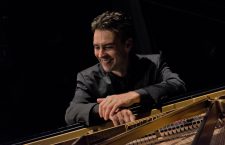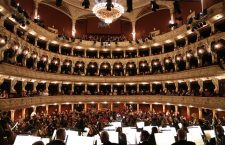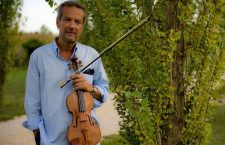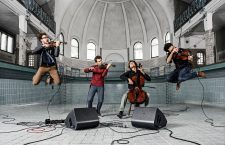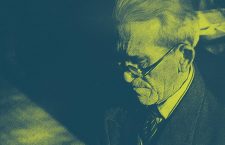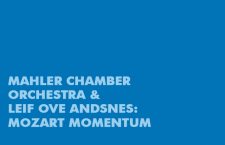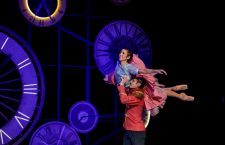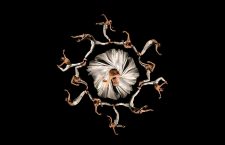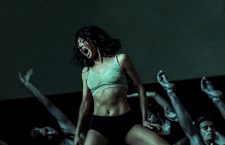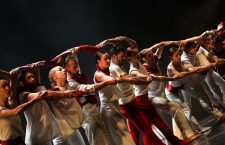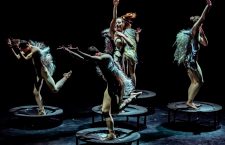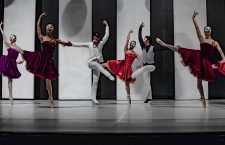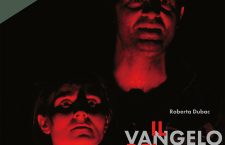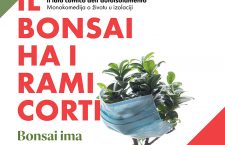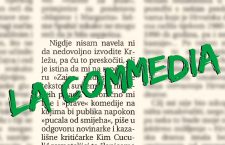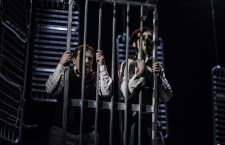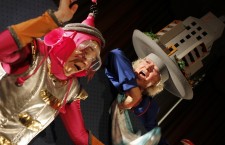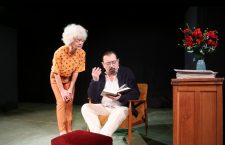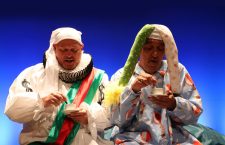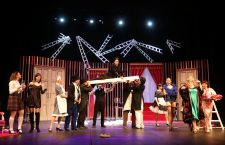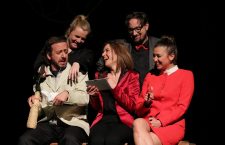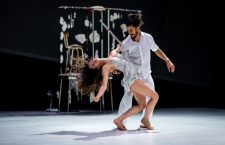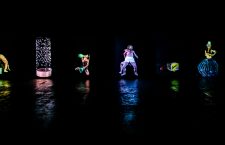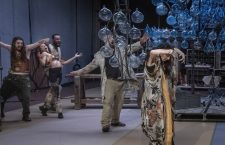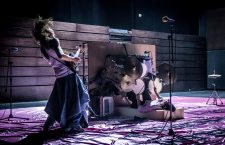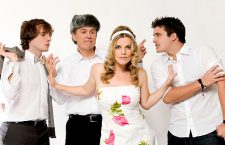PRACTICING DIVERSITY, SECOND SEASON
Finally: CNT in ECoC
With the whole of its creative and production operation, artistic ambitions and achievements, international co-operations, reference to the critical reflection and discussion of the theatre, social and political problems; with the generation renewal (on stage and in the audience), programmes of audience development and social sensitivity – it is during the last three seasons, that the Rijeka CNT has been preparing for the challenges and advances in the year 2020.
Now, finally, we are entering the season that with its second part already extends to the year of Rijeka – European Capital of Culture. After intensive deliberations and negotiations; all the expectations, announcements and some withdrawals; in spite of uncertainties and doubts; because we know why, who, what and how; we are convinced, persistent and determined – finally, we are presenting to the citizens of Rijeka, to our guests from Croatia, from Europe and other countries, the programme that until recently was unthinkable and impossible to perform in Rijeka.
However, if we look at Rijeka as the European capital of culture primarily as an exceptional offer of programmes and big infrastructural projects, we are threatened with reducing it to the real estate and vessels, objects and symbols, transient ideas and plans, budgets, tenders and procurement, purchases and exchanges, informing and reporting. There is no doubt, all that happens and is built in the next two years, once the programmes have been carried out and the houses have been constructed; after the boats finally sail into the port, or sink, some perhaps literally – all of this will change the outlook of some parts of the town, deepen and widen the knowledge of those engaged in culture, their audience definitely, open new spaces and perspectives for new cycles of the development of culture, which still have to be reached. However, should all of this suffice?
What is the role of the CNT in the “capital”, or – what is the role of the “capital” at the CNT? Unlike other institutions in the city culture, the CNT has not recently been, neither will it soon be thoroughly renewed, at least not as – a building; besides, probably because from times immemorial it has been unquestionably and irremediably expensive, due to this or that, the CNT will always bother someone and be guilty of something, to some serve as an opportunity for a political confrontation, others as once a year occasion for their status confirmation. But, what does it, this Zajc of ours, this national theatre in Rijeka, mean to those who create it with their work and those who visit it in ten thousands, from month to month, from season to season? What does Zajc mean to you and us together, to its employees and its spectators, for whom the theatre makes – life?
In the seasons involved in the “capital of culture” (19/20 and 20/21), the performing and geographic space of the Rijeka Theatre activities also includes performances on the chamber stage that we, with our own forces and resources renovated at the Delta 5 (the ever more popular Zac Lab), as well as concert spectacles at the Arena in Pula (Summer Classics captivating thousands of spectators from all over the world) , while the itineraries of our tournaments take us from Ljubljana to Belgrade, from Italy to Finland. However, we managed to captivate these new spaces before the year 2020.
Both the regular and ECoC programmes in the year 2020, besides a number of famous names and titles, present numerous works, authors and ensembles who the Rijeka audience will encounter in their city for the first time, beginning with Wagner’s Tristan und Isolde, Mahler’s monumental Symphony No. 2 “Resurrection”, Shostakovich’s deeply moving Symphony No.13 “Babi Yar” and the guest performance of the Mahler Chamber Orchestra, then Webber’s Evita and Król Roger by Karol Szymanowski, all the way to Anna Bogart, Leif Ove Andsnes, Mauro de Candia, Luciano Delprato, Maurice Causey, while in the autumn of 2020, the famous Münchener Bach-Chor and opera divas Karita Mattila and Elīna Garanča. However, after the previous few seasons, our audience already expects from us Rijeka premieres, artistic discoveries and artists of the world fame. Thus, for us at the Zajc, the programme and the spaces of the ECoC will be the continuation of the development, ony with a stronger impetus and grip, the opportunity for an occasional resume, though not a new beginning or already the conclusion of a creative period and managing phase.
The new, in part also the ECoC season, is the continuation of the Rijeka CNT “practicing diversity”, also the invitation to begin considering this diversity in a more intense and serious way. In the year of ECoC, let the CNT be the place of the critical reflection of its own identity, freedom of thinking of the theatre generally and or own one, as a resource and scene of (self)consciousness of a city, our City, still too bottled up, insufficiently bold at the idea da it was the “capital” of culture even before others announced it was going to become one – in the year 2020. We at the CNT have thus decided to think and work in the 2020 as if we were already in the 2022.
Let us think it over: the CNT is not one but seven theatres.
Although the Croatian National Theatre Ivan pl. Zajc in Rijeka was established, legally and financially still existing and functioning as a one institution; though it is locally and in wider Croatian frameworks (city, county and national) recognized as (another) Theatre of the national status; though from this perspective it is too easy to conclude and superficially comment that such, just one institution, is actually “too expensive”, moreover, stifling the development of culture of a relatively small and financially weak city, that which is too often disregarded is the fact that this, supposedly “one” Theatre actually unites “four theatres” and still more artistic entities, wholes, that is, ensembles. There are actually two drama theatres (Croatian drama and Italian drama), ballet & dance and opera theatre, Kamov Rijeka Youth Theatre, then also the symphony orchestra and – the still emerging Fifth Ensemble.
Such distinctions are by no means of a technical nature. For those who would like to see our Rijeka and any other CNT as “such one Theatre”, a ponderous and slow institution, it is easy to resort to the argument of the “relict of the times past” and an old-fashioned model of the institutionalized cultural activity. However, the organizational structure, actually, the whole concept and functioning of the contemporary “national theatre”, especially our Rijeka one, we can also consider from a contrary perspective and recognize in it an exceptional, multiple cultural value that each of the “seven theatres” brings, “theatres” deliberately joined into an economical, dynamic in a pro-performing way, a polyvalent and necessarily co-operative centre / Centre of performing arts.
At the same time, Zajc is the drama theatre and concert hall, theatre laboratory and the “factory” of spectacles, neoclassical ballet and contemporary-dance ensemble, opera house and the theatre for children and the young. The range and heterogeneousness of aesthetics, genres, styles, performing and artistic forms and other creative practices represented in the programme of productions and performances, concerts, actions and events, make the Rijeka Theatre a really unique institution and the production of culture in the scope that is much wider than Rijeka, the city in whose “fluid” identity and restrained manner, the nowadays emancipated Zajc persistently wishes to inscribe the Brechtian gestus: attitude and conduct. It is with regard to this that, at the same time, Zajc is a critical thought and proud body of its City, the concept and architecture of its future, the live archive of its past, the reflection and resistance to its present.
The slogans of the former three seasons, as the “International National Theatre”, “Winning Ourselves Again!” and “Practicing Diversity”, were not only promotional and marketing puns, but real messages that express aspirations, persistence and ideas, directing the work and activities of the Rijeka Croatian national theatre variant. We have transformed the multiplicity of functions from obligation into an advantage and challenge. Our ensembles, our artists, are not specialized in particular theatre forms only, expressions and purposes (e.g. for children, grown-ups, comedies, musicals, drama or post-drama theatre), music and dance styles, traditions and periods, representative functions and obligations, but demonstrate and promote their eclectic quality and their attitude-position as their distinct quality and value.
The European Capital of Culture is a project owing to which Rijeka finally obtains the opportunity to turn to its future, and we at the Rijeka CNT are already waiting for you there.
Self-conscious theatre: Theatre with a character, identity and authority.
Our drama artists have already won – elsewhere, hopefully they will do so also in Rijeka – the status of actors and actresses who build their performing idiom by putting up resistance to the expressive routine, taking over the gestus of social and political criticism, accepting the risk and freedom of an acting investigation. This is why the Theatre Croatian drama is – Drama with Identity. The Italian drama – not only one of the rare ethnic minority ensembles within a national theatre, but also the oldest permanent ensemble in Italian language – Il Dramma con identità.
Our ballet and dance artists do not accept the dictate of tradition, the terror of form and vacant gaze in the function of a technical performance. They dance personally, unreservedly, with a sense of humour, creatively and intelligently. In the last few years we succeeded in transforming their vulnerability and hopelessness into determination and perspective of an international range. They are and they perform – Ballet with Character,
Our Opera resists the megalomania of the set design and frivolous spectacularising that reduce the operatic art to a socially irresponsible, actually arrogant cultural and political economy, the show(business) completely dependent on the production and marketing regime of capitalism, garnished with the feudalist romanticism and theatrical gesture or depreciated by a realistic iconography and television acting. To such an operatic world and style, the Rijeka Opera juxtaposes a thoughtful dramaturgy, dramatic sensibility and awareness that the survival of the opera is possible only if we put its aesthetic function and critical potential before every other interest. Such an attitude can only be represented by – Opera with Authority.
Values and distinctive qualities: character, identity and the authority of our artistic ensembles that we have been developing quite strategically in the last few seasons, aware that ethics is a prerequisite of aesthetics; that artistic freedom is impossible without courage, knowledge and excellency; that experience is empty without thought; that work is futile without co-operation as the individual achievement in the theatre cannot be realised without joint effort and shared responsibility. This is why Zajc is more than a theatre – Zajc is a community: of artists; employees of all of its departments, from the technical one and the executive production to the publicity & public relations, also our spectators. Zajc is a community that keeps revitalising.
“Zajc – Theatre for New Generations” is the name of the campaign we are using this season to invite new visitors to the Rijeka CNT. Join us. Practice with us our and your diversity. Our and your theatre – life.
Marin Blažević, PhD
General Manager
CNT Ivan pl. Zajc
DRAMA WITH IDENTITY
The new season builds upon the previous one, when we began practicing diversity by opening the themes that penetrated deeply into the issue of identity, ours as well as that of our audience, namely, the gender identity, ethnical, historical, class and sexual one. Michelangelo, Lolipop, Regoč, Sunset Boulevard and Leica Format are performances the themes of which are devoted to sometimes a painful, often quite a complex, but definitely always a changeable issue of identity. Diversity and heterogeneousness are mirrored in our new titles, namely, from Real Comedy /Prava komedija/, in which completely different authors’ signatures are encountered, such as that of Zijah Skolović and Matija Ferlin, also that of Saša Anočić and Jelena Lopatić, to the impossible artistic practices brought by the BADco, or the uproarious Madame Minister /Gospođa ministarka/; in plays for children and the young, from the dreamlike Little Prince in the direction of Renata Carola Gatica to the tragic Oedipus the King in the direction of Luciano Delprato. As the season highlight, it is finally the play Practicing Life /Vježbanje života/ that the Croatian and Italian Drama together read again within the programme of the Rijeka 2020 – European Capital of Culture.
The diversity of genres and forms, themes and aesthetics, will present to our audience a challenge for theatre experiences, also a challenge for our ensemble to show what it is that makes it so special. The Croatian Drama will be focusing on the inconstancy of their acting identity, on processes of transition and borderline, that is, their full artistic potential. The ensemble that through its development has co-operated with most different authors and contributed to totally different poetics, has grown into an ensemble without prejudices and fear of the unknown in the artistic creation, which is exceptionally rare as it is the nature of a group to become more careful, conservative and distrustful with years. It could be due to this being a port city, or the melancholic rain, or is it perhaps owing to themselves, however, this ensemble has never been stronger and more creative.
At the same time, the Croatian Drama ensemble has been joined by another ensemble, The Fifth Ensemble that has captivated the Rijeka audience with the performance of Descendants, Giants, Gods. Branko Mijić, the Novi list daily columnist, has described this ensemble as “The best thing that could happen to Rijeka and Croatia”.
Taking into account these small theatre communities that we call ensembles, Hellmuth Plessner, German philosopher and sociologist, determines conditio humana as a disengagement of the human being from herself, the ability to recognise herself from the outer viewpoint, the one opposite her, namely, someone else she recognises from this position of viewing. It is in this state that the theatre finds its basis – the state of creating and experiencing itself as someone else and presenting itself in the wide spectrum of different identities.
Renata Carola Gatica, Croatian Drama Director & Nataša Antulov, Croatian Drama Dramaturge
OPERA WITH AUTHORITY
Over the last few seasons we have regularly been announcing the premiere opera programme as exceptional and a breakthrough. For opera lovers and those who have just become ones, paraphrasing Dražen Sirišćević, who is finally joining us in the role of director and not just as our faithful spectator, it is no longer a piece of news that we have reformed the Rijeka Opera in the theatre aesthetics and production ethics, introducing on stage the theatre contemporaneity, persistently showing there should be meaning also in the spectacle, that it is also there that you can present an issue inviting critical opinions, also that some spectacles do not necessarily need to be in partnership with the capital. During the last five seasons we have presented poetics of a number of directors that had not directed in Rijeka before or directed an opera (Romanowski, Znaniecki, Söderblom, Glavan, Melano, Buchmann, Koivukangas, Banich and Blažević), intending to follow this path also in the new season, when, next to the aforementioned Dražen Sirišćević, we will present the legendary American director Anne Bogart and the Polish director Krystian Lada, winner of the MORTIER Next Generation Award for the year 2019. Next to opera directors, our opera productions have been conducted for the first time by a number of conductors with important international careers. Besides our main guest conductor Ville Matvejeff and the new chief conductor Yordan Kamdzhalov, there have been Stefano Rabaglia, Alessandro Cadario, Paolo Olmi, Paolo Bressan, Beatrice Venezi, Marco Boemi, TaeJung Lee and Tomislav Fačini.
In the last five seasons, the programme of opera and concert productions has presented no less than seven operas that had never been performed in Rijeka before (Oedipus Rex, La vida breve, Giulio Cesare in Egitto, Le convenienze ed inconvenienze teatrali, Dido and Aeneas, Roméo et Juliette and Elektra). We have brought back into the programme of the Rijeka Opera works that the Rijeka audience could not have heard or seen in their town for over half a century: Don Giovanni, Eugene Onegin, Andrea Chénier, Otello and Werther. Predictability and adaptability of the repertoire to the routine expectations of the audience we have changed with programmes that widen the horizons of knowledge and make more profound the experience of the opera art, attracting into the theatre new groups and generations of visitors, joined with those more inclined to the tradition, yet curious. The opera titles of the new season do not hide the intention of continuing the process of the repertoire breakthrough, though we will begin with the operas at the very top of the canon of repertoire: the premieres of Madama Butterfly (in co-operation with the CNT Split), Tosca and the renewal of La Bohème (in co-operation with the Finnish Jyväskylä Ooppera), joined in the Puccini trilogy, as well as the gala performance of Carmen that we are temporarily bringing from the Arena in Pula onto the Zajc stage in order to brighten up the Rijeka autumn with Summer Classics.
The new year 2020 brings the premiere productions of two titles, regarding which, after the last season’s Elektra, we do not have any doubts ourselves. At the very beginning of the ECoC programme and for the first time in its history, the Rijeka Opera will produce an opera by Richard Wagner, that is his “most courageous and original work” as Wagner himself wrote, namely, Tristan und Isolde. The soloist cast is led by the impressive Maida Hundeling, the unforgettable Elektra, who, in two seasons, will thus present to our audience the two most challenging and impressive soprano roles of the German opera repertoire.
It is this season, that the Savonlinna Opera Festival, one of the leading opera festivals in Europe, is staging Król Roger in the co-production with the Opera of the CNT Ivan pl. Zajc. Although this opera was completed in 1924, it was rarely performed during the whole century in spite of being one of the highlights of the twentieth century opera literature. It is only in the 21st century that this fascinating opera experiences a real revival, so that the Rijeka Opera will be the first to stage it in Croatia, after Graz the second in a wider region. After the premiere and reruns in Rijeka, the production of Król Roger travels to Finland, where, in the end of July of the year 2020, it will be joined by two other productions of ours, Giulio Cesare in Egitto and Werther, as guest performances of the Rijeka Opera at the Savonlinna Opera Festival. This year it was Teatro alla Scala Milan that was the guest opera house at that festival, while next year it is – us. Teatro alla Scala from Milan in 2019, then Zajc from Rijeka in 2020. Not bad!
Petar Kovačić,
Opera Director
Dear friends of music,
Welcome to the new concert season, which, owing to the special year 2020 is different from the previous ones. Rijeka, as a European Capital of Culture will be a true port of diversity, filled not only with our own concerts but also many exclusive guest performances. We will be able to enjoy a great many remarkable musical moments by artists, ensembles and works we have not been able to listen to in our town before. The season opens with the performance of the grandiose Bruckner’s Symphony No. 9 under the baton of Yordan Kamdzhalov, chief conductor of the Rijeka Opera Orchestra. The symphony will be performed with the Finale that has been prepared by Nicola Samale, John A. Phillips, Benjamin Gunnar Cohrs and Giuseppe Mazzuca based on the recently found Bruckner’s manuscripts, performed for the first time by Simon Rattle with the Berlin Philharmonic Orchestra in the year 2011. In October, after three years, the virtuoso pianist Goran Filipec comes back with the recital presenting compositions of Franz Liszt from his recently awarded sound carriers. January brings us two new guests! Dmitry Kryukov, conductor of a younger generation with noted appearances at the Moscow Bolshoi, is conducting Borodin’s Symphony No. 2. Besides him, there will be the German violoncellist Gustav Rivinius, winner of the renowned competition Tchaikovsky in the year 1990. He will be performing the well-known Variations on a Rococo Theme for Violoncello and Orchestra by Pyotr Ilyich Tchaikovsky. The introduction to the official beginning of Rijeka as European Capital of Culture takes place at the concert of 31st January with the performance of two master-pieces, Papandopulo’s Laudamus /Slavoslovlje/ in co-operation with the CRT /HRT/ Chorus, and Dvořák’s Symphony No. 9, “From the New World”. These two pieces celebrate freedom, tradition, openness and collectivity, hopefully to be building the identity of our city also in the years following the 2020. February brings us attractive guest performances. First, we will be able to enjoy the wind quintet Les Vents Français with the famous Emanuel Pahud playing the flute and Radovan Vlatković the horn, then, owing to the Italian Consulate in Rijeka, we will have the Venice Baroque Orchestra, one of the best baroque orchestras in the world. In their programme, featuring exclusively Antonio Vivaldi’s works, Giuliano Carmignola, eminent Italian violinist will perform as a soloist. This concert will close officially the exhibition With Violin over Borders – Stradivari in Rijeka, Kresnik and Cremona, created and organised in co-operation of the Maritime and History Museum of Croatian Littoral and the Stradivari Violin Museum from Cremona. Goran Filipec, main guest performer of the concert season, comes back in March to perform Beethoven’s Piano Concerto No. 4 for Violin and Orchestra to be followed by Shostakovich’s Symphony No. 14 “Baby Yar” conducted by Ville Matvejeff, and for the first time in Rijeka. “Babi Yar” was composed in remembrance of one of the most brutal crimes in history, the massacre of 30,000 Jews by Nazis in the year 1941 in the ravine Babi Yar in the outskirts of Kiev. The symphony also abounds with other themes and motifs connected with the situation in the Soviet Union of that time. We begin the month of April with the guest performance of one of the most sought-after string quartets in Europe, the Vision String Quartet. The four young artists manage equally well in all musical genres, each of their concerts being an exceptional artistic experience. To be remembered will definitely be the performance of Mahler’s Symphony No. 2 “Resurrection”, occasional in the week after Easter. Owing to the co-operation with the Croatian Radiotelevision (HRT) Symphony Orchestra and Chorus, there will be over 200 performers on stage under the baton of Yordan Kamdzhalov. Before its Rijeka performance, we will perform Mahler at the Vatroslav Lisinski Concert Hall in Zagreb, in the “Kanconijer” cycle. In May, we are marking two very important anniversaries of Ivan Matetić Ronjgov, 140 years of birth and 60 years since his death. In the entirely chorus a cappella programme, we will listen to some of the most popular as well as less performed compositions of this most significant vocal composer from this area. A number of choruses will be performing (Opera Chorus, CRT /HRT/ Chorus, Ivan Matetić Ronjgov Music School Chorus, Josip Kaplan Young People’s Chorus, Kanat Mixed Vocal Ensemble, Val Rijeka Chamber Chorus and KUD Učka Women’s Chorus), all under the baton of Maestro Tomislav Fačini. At this exceptionally important concert there will be over 200 singers on stage at a time. The main event of the season is definitely the guest performance of the eminent Mahler Chamber Orchestra. The orchestra founded with the support and mentorship of Claudio Abbado, consisting of excellent musician from twenty different countries, will perform in Croatia for the first time! In the programme devoted to Wolfgang Amadeus Mozart, the most famous pianist of today – Leif Ove Andsnes will be playing the piano! Moreover, Yordan Kamdzhalov will be conducting the Orchestra at the traditional New Year’s Concerts, Preludes and Overtures, that are meant to be a pre-bar to the music year 2020, also at the concert season Finale in June. If you were thinking this is all regarding the concert programme in the year of Rijeka as European capital of Culture, you are wrong. The autumn of 2020 will bring three spectacular concerts, Karita Mattila, one of the last true opera divas, performs with our Orchestra in September, and the famous mezzosoprano Elīna Garanča in November. Furthermore, for the first time in Rijeka, we will be able to listen to Bach’s Mass in B minor during the guest performance of two ensembles from the very top of the list of best choruses and orchestras for baroque music, Münchener Bach-Chora and Münchener Bach-Orchestra, known for their anthological concerts and recordings under the legendary Karl Richter.
Petar Kovačić
Opera Director
BALLET WITH CHARACTER
The plot of the fairy tale The Nutcracker and the Mouse King balances between the world of reality and the world of dream, constructing a specific ballet ambiance that can make happy and gladden the hearts of the audience of all generations, not only in the pre-Christmas time. In the role of a choreographer, I find it hard to resist the innovative dynamic of the ballet ensemble that gave rise to specific and unique dancing personalities in their wish and readiness to work at the highest artistic levels. It is these characteristics of the Rijeka Ballet ensemble that will be the backbone of my project Lace, our second premiere. Lace evokes the historical and social processes of this region. Aware of my history and my actuality, also my own pledges for the future, and following my earlier works, with this choreography I remain preoccupied with the physical manifesto of dancers. Lace making is the art of survival, just as the art of dancing within a ballet ensemble is a way of surviving, through dancing collectivity, humaneness and solidarity. The handwriting of the Greek choreographer Andonis Foniadakis is already known to the Rijeka audience after his last year’s successful and popular Bolero on trampolines. It is in the new season that Foniadakis, jointly with a Greek creative team, will prepare the Burning Water. It will be an exciting and pivotal start of the Rijeka Ballet in the engaged programme of Rijeka – European Capital of Culture 2020, and a way of suggesting that culture does not belong to the élites, but, on the contrary, it is a public good. The project Koreo Lab, no longer a novelty of the season, will continue with inaugurating and supporting young choreographic talents. Through the performing evenings of this project, Ballet members have the opportunity to act inclusively, investigate new dancing aesthetics, discover and build their own choreographic identity, proving their diverse artistic engagement. On the other hand, the Ballet Studio is the novelty of the season. We will be bringing the artistic work of our ensemble closer to the children and the young with our regular and professionally led workshops of ballet and contemporary dance. Last but not least, led by the principle of diversity, we have chosen a site-specific, ballet and drama production We’ll Both Fly Away If I Tell You What’s Happened that the audience will follow from life boats and the coast. Not afraid of the potential risk that is brought by this collaborating encounter, we are ready to follow the directing and choreographic challenges of Janez Janša and Maurice Causey. In all that we are preparing for you, we will be consistent, unique, direct and entertaining – a Ballet with Character.
Maša Kolar,
Ballet Company Director
DRAMA WITH IDENTITY
You need to be wise to know how to live with a difference, without trying to eliminate the diverse – Gregory Bateson, anthropologist and sociologist. There is an important season ahead of our historical ensemble of Italian Drama. It is the season that will encompass a half of the calendar year in which Rijeka takes charge of the European Capital of Culture in the year 2020. In order to remain faithful to the slogan Practicing Diversity, we are offering you productions created in a special co-operation between departments of the Croatian National Theatre Ivan pl. Zajc. Diversity is what sets us apart, what makes us unique. This virtue, unless we isolate it, but let develop freely and spread to the surroundings, can become culture. The exchange of experiences is necessary for the man, a social being first of all. Nothing remains the same forever, all changes, ideas, habits and culture. This process of a collective growth can take place only if we accept the complexity of the very social structure. Nowadays, discrimination based on diversity happens ever more often in the world, so that the diverse, instead of becoming wealth, becomes the source of a conflict. Unfortunately, we live in the world that is organised so that it abounds with hatred, where the concept of diversity is used for discriminating and creating inequality. In its jagged history, Rijeka has always been a meeting point of cultures. This is what makes it a heterogenous city, giving it its identity, making it special. Theatre is a mirror of the society that we belong to. Thus, we are the theatre of diversity and acceptance of diversity, which makes us rich with culture, so this is what we will be showing you this season. This year we will be mixing languages, actors, texts and directors in our projects, in order to grow together and recognise our uniquely diverse identity – the Italian theatre in Croatia. In the season 2019/2020, our drama ensembles are not divided, neither do they differ in slogans. We are joining our differences in the common objective: Rijeka 2020 – European Capital of Culture. This year we are presenting our city, our diversity, our joint: Drama with Identity!
Giulio Settimo,
Italian Drama Director


